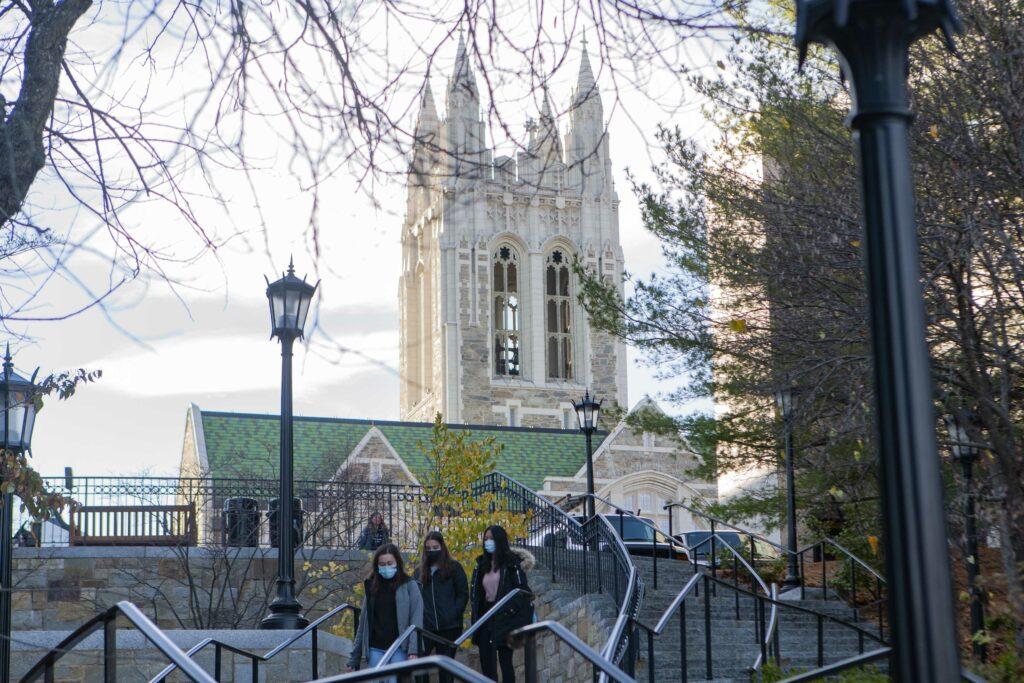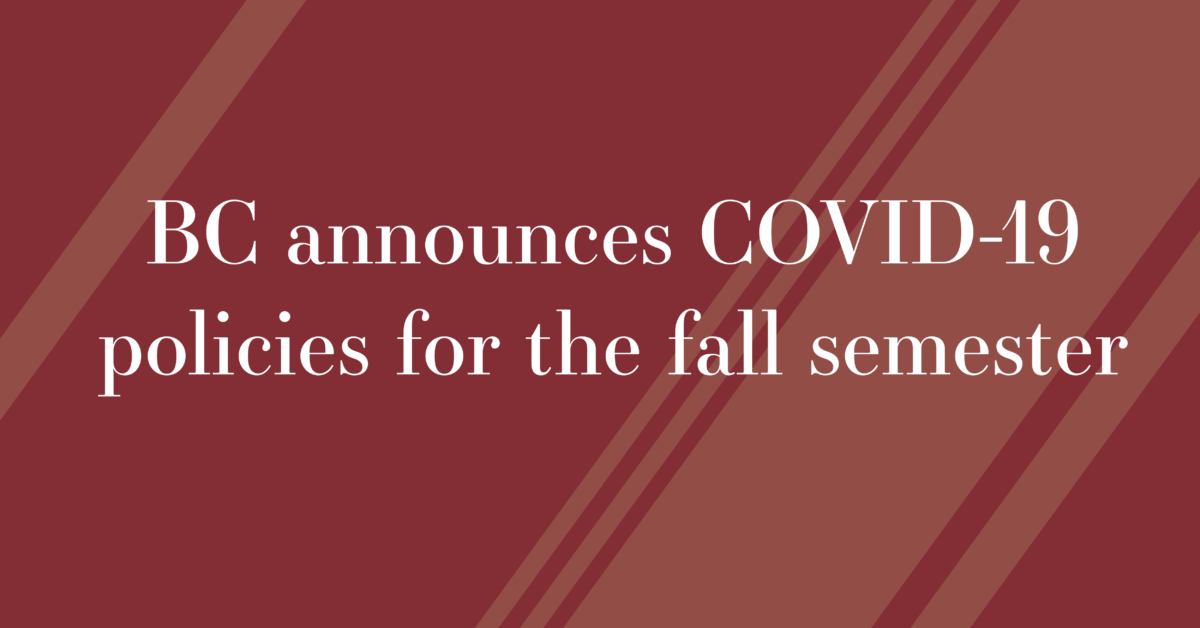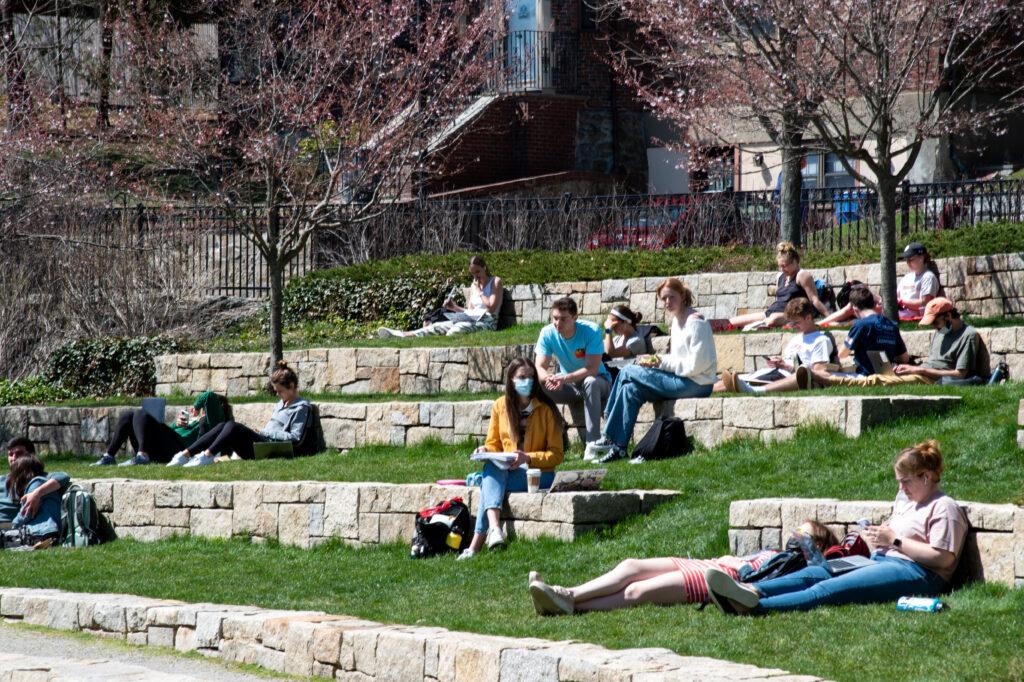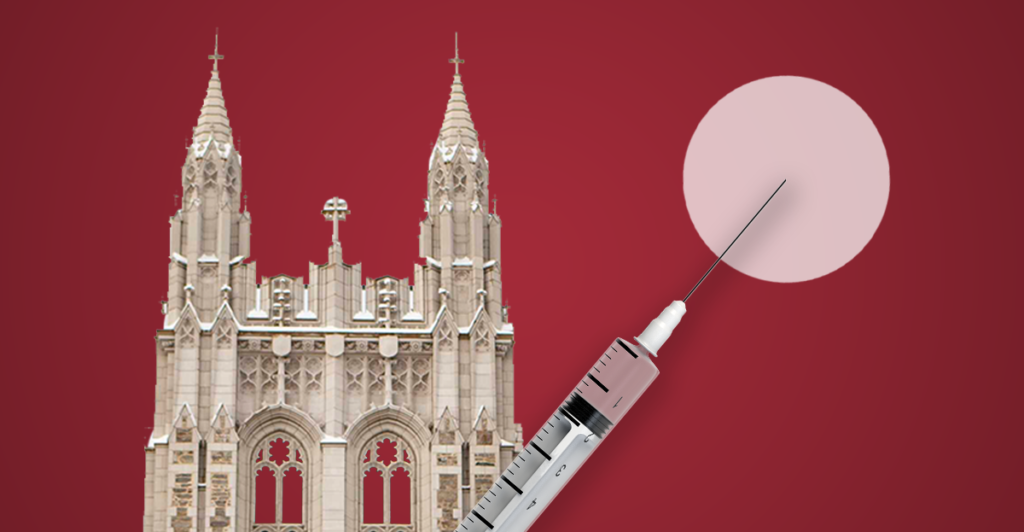Boston College has reported its highest number of undergraduate cases of COVID-19 in a single week with 75 positive cases out of 9,628 tests, a positivity rate of .78 percent, according to the University’s COVID-19 dashboard as of Sunday.
The University has also reported the largest number of undergraduates in isolation, with 105 students isolating as of Friday. Sixty-two students are in isolation housing, and 43 are recovering at home.
The update surpasses the previous record of 91 students in isolation which BC set last Thursday. Last semester, the highest number of undergraduate students in isolation at one time was 87 on Nov. 27.
In the 12-day period from Feb. 1 to Feb. 12, the BC community represented 8.8 percent of all positive tests associated with higher-ed testing in Massachusetts, according to the Massachusetts COVID-19 Dashboard.
By the end of the second full week of the fall semester, BC had reported 108 undergraduate cases of COVID-19 out of 15,273 tests, a positivity rate of .71 percent. At the end of the second full week of the spring semester, 198 undergraduate students have tested positive out of 34,289 tests, a positivity rate of .58 percent, as of Thursday.
Executive Vice President and Interim Vice President for Student Affairs Michael Lochhead attributed the recent rise in cases at BC to “students letting their guard down” in an email sent on Feb. 9.
If the trend continues, BC may implement further restrictions, including further limiting the guest policy, requiring all students to quarantine in their rooms, and potentially ending the on-campus semester early, the email said.
In response to the rise in numbers of students in quarantine and isolation, the University required all students to attend mandatory meetings on Zoom.
“The number of close contacts has risen significantly,” Mogan said at one of the meetings. “We are reaching a crisis stage so although the positive numbers are manageable, it’s the quarantine numbers we are particularly concerned about at this time.”
The University does not release the number of close contacts in quarantine, University Communications told The Heights in November.
Northeastern University and Providence College—both of which BC has compared itself to in its COVID-19 releases—as well as Tufts University release the number of students in quarantine. Boston University, the University of Notre Dame, and University of Massachusetts-Amherst—all of which BC has also compared itself to in releases—do not release their quarantine numbers.
Administrators reminded students at the mandatory meetings that penalties for violating the University’s COVID-19 policies may include suspension from the University and loss of University housing.
“We don’t want to do these things but it only takes a handful of people that can really create drastic ripple effects across the campus,” Associate Director of Student Conduct Peter Kwiatek said. “We ask you to talk to one another and be the person that says you shouldn’t participate in something because what they do has an impact on your time in college as well as other people within your community.”
After entering a “high risk” category on Feb. 7, UMass entered a period of significantly tighter restrictions. For at least two weeks and until public health conditions substantially improve, in-person classes will be remote and students must “self-sequester.” Boston University also implemented tighter restrictions in some residential halls, according to The Daily Free Press.
Newton reported an average of 20.3 daily cases per 100,000 residents between Jan. 24 and Feb. 6—down from 25.1 in the previous two-week period. Boston reported 38.8 daily cases per 100,000 residents during the same period, a drop from the prior two-week incidence rate of 48.5.
Massachusetts, which only officially recommends that people get tested if they have COVID-19 symptoms, have come into contact with someone who tested positive, or live in a high-transmission risk community, reported a seven-day average positivity rate of 2.4 percent on Sunday.
Featured Image by Ikram Ali / Heights Editor



















